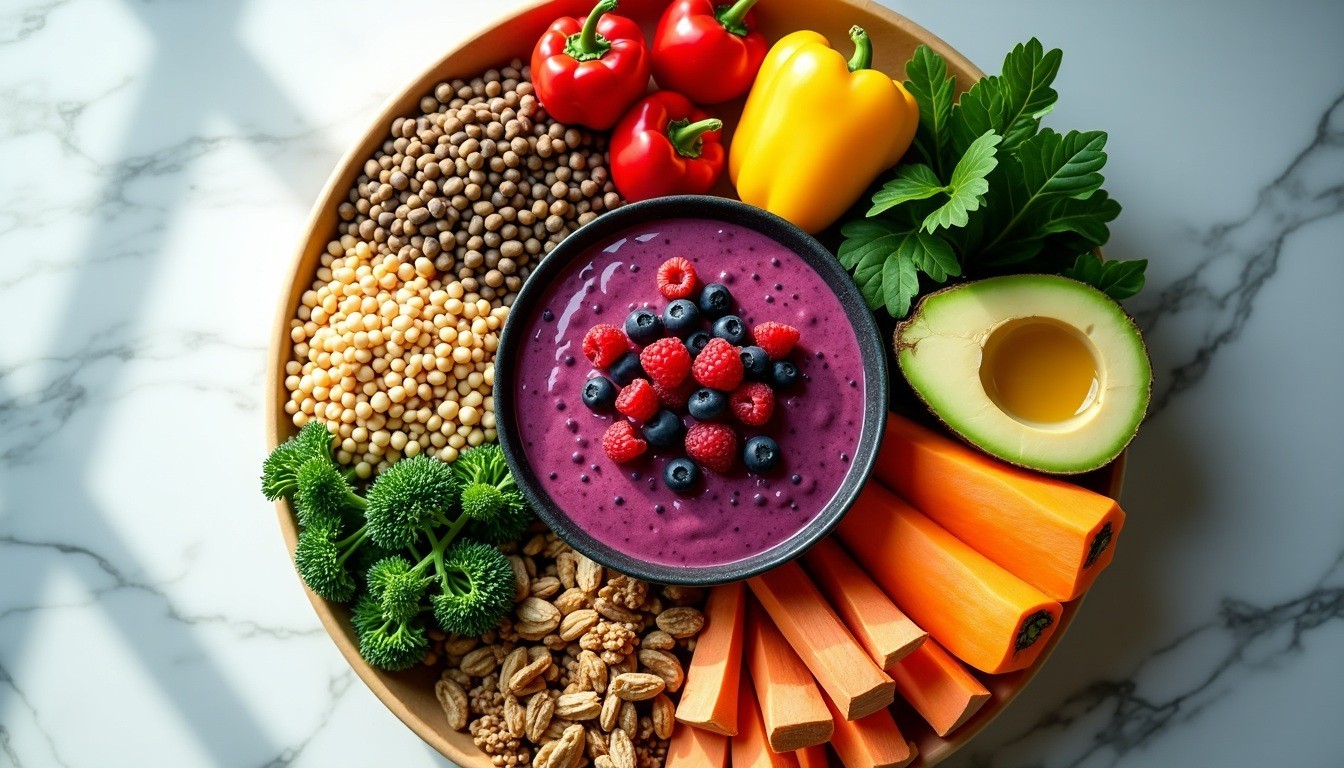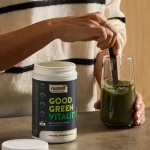

The number of people adopting a plant-based nutrition program continues to grow, and many wonder if they can meet their daily nutritional needs without animal products. Studies now confirm that carefully planned plant-based diets provide all nutrients needed for optimal health.
Plants are rich in nutrients and provide everything from protein to essential vitamins and minerals. Many people mix up plant-based and vegan diets. The plant- based approach emphasises whole foods from plant sources but stays flexible with dietary choices.
This detailed piece tucks into the ways you can meet your daily nutritional needs through plant-based foods. You’ll discover the key nutrients, protein strategies, mineral sources, vitamin requirements, and healthy fats available from plants.
A well-laid-out plant-based diet gives you all essential nutrients you need for optimal health. You need to pay attention to specific nutrients to ensure you get enough of everything [1]. Plant sources can provide balanced nutrition if you know how to optimise your nutrient intake.
Plant foods are rich in macronutrients – protein, carbohydrates, and fats. Many people worry about getting enough protein. Studies show that vegetarians and vegans usually get more protein than they need [2]. You can get plant proteins from a variety of sources like legumes, nuts, seeds, and whole grains. The protein intake tends to be lower in vegetarians (13.4% of total energy) and vegans (12.9%) compared to meat-eaters (16.0%) [3].
Plant-based diets require careful attention to certain micronutrients. Research points to several nutrients that need proper planning:
Vitamin B12: Vegan intake is lower by a lot (0.24-0.49 μg vs recommended 2.4 μg) [4]
Calcium: Many vegans get less than the recommended 750 mg daily [4]
Iron: Plant-based eaters need 1.8 times the recommended daily allowance [5]
Vitamin D: Levels change based on sun exposure and skin pigmentation [5]
Zinc: Plant compounds like phytates can limit absorption [4]
Whole foods provide nutrients in their most natural form. Some situations might require supplements. Whole plant foods offer combined benefits – nutrients work together for optimal absorption. Iron absorption needs vitamin C, which depends on selenium, vitamin E, zinc, and vitamin B6. You can find these nutrients naturally in whole foods like Brazil nuts and leafy greens [6].
Vitamin B12 comes almost exclusively from animal products. Strict vegetarians and vegans need to take supplements [1]. Recent research shows vegetarians and vegans can get enough vitamin D through fortified foods [5]. This shows how smart food choices and fortification help meet nutritional needs without relying too much on supplements.
Plant-based proteins can meet your nutritional needs with proper planning and understanding of optimal combinations and portions. Research confirms this approach works effectively [7].
Smart food combinations unlock the full potential of plant proteins. Some plant proteins lack certain amino acids, but mixing different sources creates complete protein profiles. You can pair corn, hemp, and brown rice (low in lysine but high in methionine) with soy or pea protein (high in lysine but low in methionine). This creates a balanced amino acid profile naturally [7]. These protein combinations work well together:
Quality plant proteins exist in a variety of sources, each offering different protein content per serving [8]:
Legumes: Lentils and beans (8g per 1/2 cup)
Soy Products: Tempeh (13g per 3/4 cup), tofu (8g per 100g)
Whole Grains: Quinoa (4.5g per 1/2 cup), spelt (6g per 1/2 cup)
Seeds and Nuts: Hemp seeds (9.5g per ounce), pumpkin seeds (8.5g per ounce)
Your age and activity level determine protein needs. The recommended daily allowance (RDA) begins at 0.8g per kg of body weight. Adults over 65 need more protein – 1.0-1.2g per kg daily to maintain muscle mass [7].
Athletes and active people might need 1.2 to 2.0g per kg of body weight daily [9]. Plant-based diet followers should aim for the higher end of these ranges because plant proteins digest differently [9].
Your body absorbs protein better when you spread intake throughout the day. Scientists have found that eating 20g of protein per meal from different plant sources helps muscle protein synthesis [9].
Minerals serve a vital role in plant-based nutrition. Understanding their sources and absorption helps you get the right intake. Many people worry about mineral deficiency with plant-based diets, but research shows proper planning meets all mineral needs naturally.
Plant-based diets deliver enough iron when you make smart food choices. Plant-based eaters need 1.8 times more iron than meat-eaters [10]. The best sources include:
Your body absorbs iron better when you pair these foods with vitamin C sources. Adding citrus fruits to iron-rich meals boosts absorption substantially [11].
Getting enough calcium without dairy needs careful planning. Most adults need 1,000 mg daily, while those over 50 need 1,200 mg [12]. Fortified plant foods offer reliable calcium sources. A 200ml serving of fortified plant milk provides about 240mg [13].
Calcium-rich plant foods pack plenty of nutrients. Calcium-set tofu contains 350mg per 100g [13], while sesame seeds provide 201mg per 30g [13]. Leafy greens work well too. Note that some greens have oxalates that limit calcium absorption. Low-oxalate options like kale and broccoli work best [12].
Plant-based nutrition demands extra attention to zinc intake. Women need 7mg while men need 9.5mg of zinc daily [14]. Plant-based eaters might need 50% more zinc because plant sources don’t absorb as well [10].
Plant-based foods rich in zinc include:
Mineral absorption improves with specific preparation methods. Soaking, sprouting, and fermenting reduce phytates that block mineral absorption [15]. Your body absorbs zinc better when you combine zinc-rich foods with protein sources [16].
Spreading mineral intake throughout the day works better than eating large amounts at once [14]. This helps your body absorb minerals while keeping steady levels naturally.
Getting essential vitamins from plant-based sources needs careful attention to specific nutrients. This is especially true for vitamins B12 and D, which plants rarely provide.
Vitamin B12 deficiency is a big problem for people who follow plant-based diets. Studies show vegans only get about 10-20% of the B12 they need each day [1]. Adults need 2.4 micrograms daily. This amount goes up to 2.6 micrograms during pregnancy and 2.8 micrograms while breastfeeding [15].
Plant-based eaters can get B12 from these reliable sources:
Experts say you should eat fortified foods 2-3 times daily or take a daily supplement with at least 10 micrograms of B12 to absorb it properly [17].
Vitamin D is another vital nutrient to think about in plant-based nutrition. Research shows vegans typically get less vitamin D (1.52 μg/day) than meat-eaters (4.17 μg/day) [3]. UK guidelines say all adults need 10 micrograms (400 IU) daily [18].
Vitamin D production from sunlight drops between October and March. This makes food sources extra important. UV-exposed mushrooms can give you up to 366 IU per half cup [19]. A serving of fortified plant milk usually provides about 2.4 mcg (96 IU) [2].
A well-planned plant-based diet usually provides enough of other essential vitamins. Recent studies show vegetarians and vegans should keep track of several key nutrients [3].
The timing of your vitamin intake matters. Fat-containing meals help your body absorb fat-soluble vitamins better [19]. Your body also uses vitamins more effectively when you spread them throughout the day instead of taking them all at once.
Blood tests help track your vitamin levels, especially B12 and D. B12 deficiency might take years to show up in adults. You need to keep good B12 levels through supplements or fortified foods to prevent nerve damage and anemia [17].
Fats are crucial to a balanced plant-based diet, especially when it comes to essential fatty acids our bodies can’t produce. A good understanding of these healthy fats ensures you get the right nutrition in your plant-based lifestyle.
Our bodies need specific types of fats. Omega-3 and omega-6 fatty acids must come from what we eat. We get plant-derived omega-3s mainly as alpha-linolenic acid (ALA), which our body turns into longer-chain fatty acids EPA and DHA [20]. This process has its limits – only about 5% of ALA converts to EPA and less than 0.5% to DHA [21].
Adults should aim for 2.5% of daily energy intake for linoleic acid (about 6-8g) and 0.5% for α-linolenic acid (about 1.5g) [4]. These essential fats keep our brain healthy, support heart function, and help maintain healthy skin and eyes [20].
You’ll find rich omega-3 sources in these plants:
Experts suggest eating at least one tablespoon of omega-3-rich foods daily [20]. Algae oil supplements give you EPA and DHA directly, which makes them valuable if you follow a strict plant-based diet [23].
According to the Academy of Nutrition and Dietetics, adults should get 20-35% of their total energy intake from unsaturated fats [24]. Here’s how to keep a healthy balance:
Plant-based sources give you healthy unsaturated fats with naturally low saturated fat content. Mixed nuts pack about 54 grams of mainly unsaturated fat per 100 grams [24]. These healthy fats support essential body functions and boost heart and gut health as part of a balanced plant-based diet [25].
Plant-based nutrition provides a complete solution to meet daily nutritional needs. Careful planning and smart food choices make this possible. Research shows that the right combinations of plant foods deliver adequate proteins, essential minerals, vitamins, and healthy fats that our bodies need.
The path to successful plant-based eating starts with understanding nutrition sources. Varied legumes, grains, and seeds fulfill protein requirements. Whole plant foods supply minerals naturally. Vitamins B12 and D might need supplements or fortified foods. Plant-based fats, particularly omega-3s from flax and chia seeds, complete the nutritional picture.
Smart meal planning transforms plant-based nutrition into an achievable lifestyle. The balanced approach spreads nutrient intake throughout the day. Protein sources complement each other naturally. Colorful plant foods create variety that supports health and wellness over time.
Q1. How can I ensure I’m getting all necessary nutrients on a plant-based diet?
To ensure proper nutrient intake on a plant-based diet, focus on consuming a variety of whole plant foods including fruits, vegetables, whole grains, legumes, nuts, and seeds. Pay special attention to key nutrients like vitamin B12, vitamin D, iron, calcium, and omega-3 fatty acids. Consider fortified foods or supplements for nutrients that are harder to obtain from plant sources alone.
Q2. What are some good plant-based protein sources?
Excellent plant-based protein sources include legumes (such as lentils and beans), soy products (like tempeh and tofu), whole grains (quinoa, spelt), and seeds and nuts (hemp seeds, pumpkin seeds). Combining different protein sources throughout the day can help ensure you’re getting all essential amino acids.
Q3. How can I meet my calcium needs without dairy?
You can meet calcium needs on a plant-based diet by consuming calcium-rich plant foods such as calcium-set tofu, sesame seeds, and leafy greens like kale and broccoli. Fortified plant milk is also an excellent source, typically providing about 240mg of calcium per 200ml serving. Aim for the recommended daily intake of 1,000 mg for most adults.
Q4. Do I need to take supplements on a plant-based diet?
While a well-planned plant-based diet can provide most nutrients, some supplements may be necessary. Vitamin B12 is particularly important, as it’s primarily found in animal products. Vitamin D may also be needed, especially during winter months. Consider having your nutrient levels checked and consult with a healthcare professional about appropriate supplementation.
Q5. How can I incorporate healthy fats into my plant-based diet?
Healthy fats can be incorporated into a plant-based diet through foods rich in omega-3 fatty acids such as flaxseeds, chia seeds, walnuts, and hemp seeds. Other sources of healthy fats include avocados, olive oil, and various nuts and seeds. You should aim to get 20- 35% of your total energy intake from unsaturated fats, spreading intake throughout the day for optimal absorption.






Accepting payments via


YourHealthBasket © 2025
detoxpeople Ltd
Registered in England & Wales 07156741
VAT reg GB 103 3641 60
Our new practitioner portal has been released and it’s now easier than ever to link a client’s account and provide them with suggestions using our new protocol system.
Convert your current cart into a protocol which can then be assigned to a linked client.